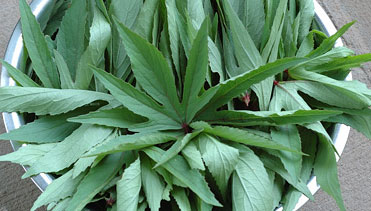Vegetarian Food need not to be boring and dull!
Who says vegetarianism is the boring, tasteless thing in the world? In fact, it is the most tasteful, celebrated way of eating the food! There are more numbers and types of Vegetarian Recipes than any other type of recipes in the world.

Why vegetarian?
- Vegetables come in all sorts of shapes and sizes. Include infinite varieties – many tastes, colors, textures, and as many nutrients and vital ingredients as possible for us to live healthier and happier.
- The feel good factor of vegetarian diet helps us continue to achieve balanced life – physically and mentally.
- Vegetables compliment better with their herbal and dried spices to prepare tastiest and celebrating Indian recipes.
- Proven to be gentle on our tummy and also provide long term health benefits.
- Vegetarian Recipes include wide variety of ingredients both fresh and long shelf life food products. Fresh ingredients consist leafy vegetables, roots, flowers, fruit vegetables, herbs, stems, stalks, and many more. The pulses, lentils, millets, spices and dried herbs come under long shelf life foodies.
- Following a vegetarian diet not only provide enough proteins and minerals, but also plenty of fiber, vitamins and antioxidants than other diets.
Introduction to Indian Cooking of Vegetables:

How to cook Indian vegetables?
It might look like a daunting task to cook Indian vegetables, only because they look completely new and different, if you have not tried before. But, once you know what is what and how one tastes when cooked in a particular type, it’s not that hard at all!
First choose what type of vegetable it is:
Leafy Vegetables:

Methi or Fenugreek leaves

Gongura
Fruity Vegetables:

Bhendi or Okra

Baingan or Aubergine or Bringal
Root Vegetables:

Tora
Dals, beans and pulses:

Indian dals
Vegetarian Diet Myths:
- Not enough Proteins? Certain beans and pulses contain more proteins than meat products to their weight ratio.
- No Omega 3 fatty acids? Linseed, rapeseed, flaxseed oils and walnut are high in omega 3 fatty acids.
- Insufficient Vitamin B12? Soya products are a good source of Vitamin B12
- Where is my calcium? Kale, spinach and broccoli are some of the foods that are rich in calcium
- Iron deficiencies? Need not to worry if you eat pulses, dry fruits and wholemeal bread.
Do you know?
- Marmite (yeast extract) is 100% vegetarian and provides good source of Vitamin B12
- The Vegetarian Society is the oldest vegetarian community in the world, started in 1847 in the UK
- Vegetrains’ diet has the smallest CO2 footprint on the planet earth and biggest health benefits for humans.
- 70% of the world’s vegetarians are in India and vegetarianism roots are in ancient India
- UK has the larger portion of vegetarians compared to their European counterparts.
- Only vegetables can give you proteins and fiber with least possible cholesterol at the same time.
- Study shows that higher IQ and vegetarianism are interlinked (Children with higher IQ tend to be vegetarians in later life)
